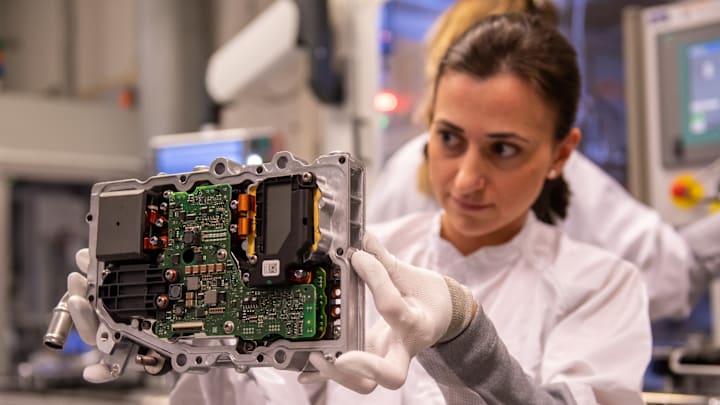Why Is Technology Important?

Technology is important because it plays a critical role in driving progress, improving quality of life, and addressing some of the most significant challenges faced by humanity. Its significance can be understood through the following key reasons:
1. Enhancing Productivity and Efficiency
- Technology automates processes, reduces human error, and allows for faster completion of tasks in industries such as manufacturing, healthcare, and agriculture.
- Tools like artificial intelligence (AI) and robotics are revolutionizing workflows, enabling businesses to achieve more with fewer resources.
2. Driving Innovation
- Technology fosters innovation by enabling new ideas, products, and services. For example, advancements in biotechnology have revolutionized medicine, while renewable energy technologies are reshaping the energy sector.
- It serves as the foundation for disruptive technologies like the internet, smartphones, and blockchain.
3. Improving Quality of Life
- Technology has brought convenience and accessibility to everyday life, from smart homes to digital communication platforms.
- Medical advancements driven by technology, such as diagnostic tools and life-saving treatments, have significantly increased life expectancy and improved health outcomes.
4. Connecting People
- Technology bridges geographical gaps, enabling real-time communication and collaboration across the globe.
- Social media, video conferencing, and messaging apps have redefined how we connect and maintain relationships, both personally and professionally.
5. Empowering Education
- Technology democratizes education by making learning resources accessible to people regardless of their location or socioeconomic status.
- Online platforms, digital textbooks, and e-learning tools support lifelong learning and skill development.
6. Solving Complex Problems
- Technology helps address global challenges, such as climate change, poverty, and disease, by providing innovative solutions and efficient tools for data analysis and decision-making.
- Examples include climate modeling, renewable energy solutions, and advances in genetic research.
7. Boosting Economic Growth
- Technology drives economic growth by creating jobs, opening new markets, and fostering entrepreneurship.
- Digital economies and e-commerce platforms provide opportunities for businesses of all sizes to thrive in a globalized world.
8. Enhancing Safety and Security
- Technological innovations in areas such as surveillance, disaster response, and cybersecurity enhance safety and protect individuals, businesses, and nations.
- Advanced warning systems for natural disasters and AI-powered cybersecurity solutions help prevent and mitigate risks.
9. Facilitating Accessibility and Inclusion
- Assistive technologies, such as screen readers and prosthetics, empower individuals with disabilities to lead independent lives.
- Technology fosters inclusivity by bridging gaps for underserved communities, providing access to essential services like healthcare and education.
10. Encouraging Creativity and Expression
- Digital tools enable artists, musicians, and writers to create and share their work globally.
- Platforms like YouTube, TikTok, and blogs provide avenues for individuals to showcase their talents and share their stories.
Conclusion:
Technology is essential for societal advancement, as it underpins progress across virtually every domain of human activity. By driving innovation, improving quality of life, and addressing critical challenges, technology serves as a cornerstone for creating a more connected, inclusive, and sustainable future. Its importance will only grow as we continue to rely on it to solve emerging global challenges and improve our way of life.